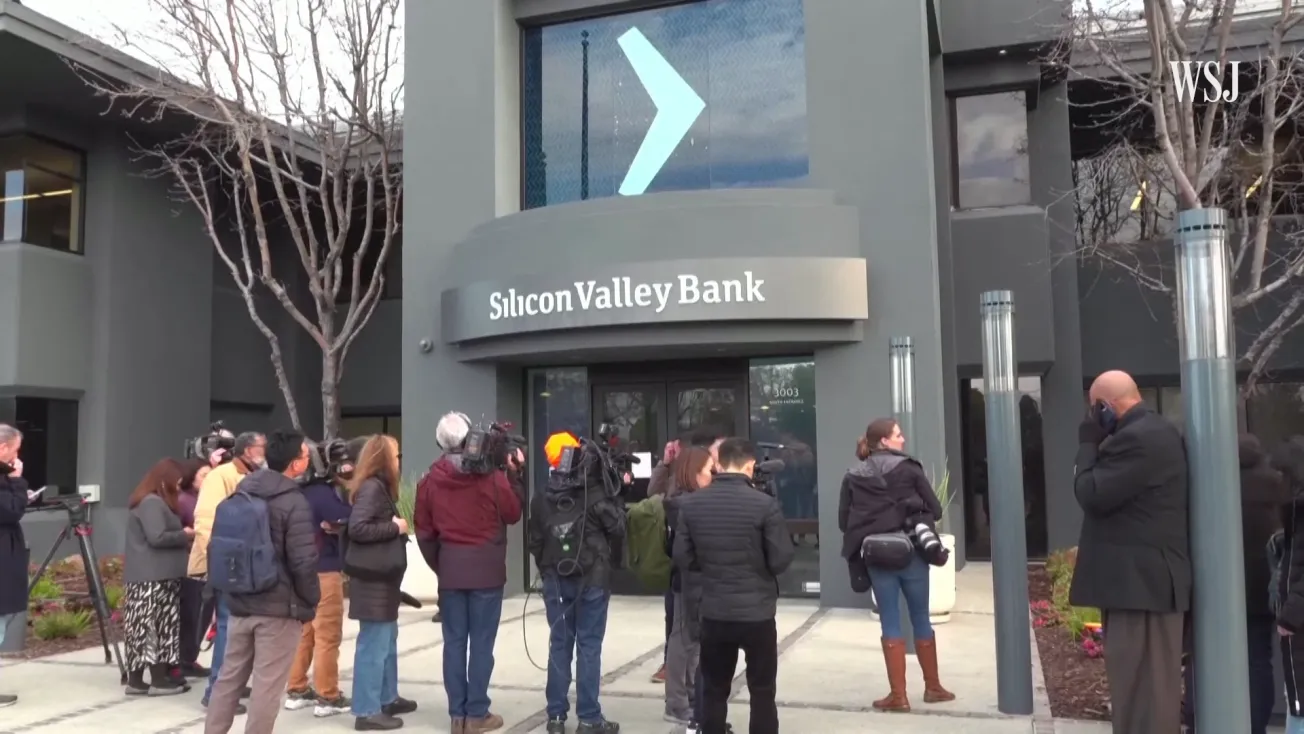Table of Contents
Kurt Mahlburg
mercatornet.com
Kurt Mahlburg is a writer and author, and an emerging Australian voice on culture and the Christian faith. He has a passion for both the philosophical and the personal, drawing on his background as a graduate architect, a primary school teacher, a missionary, and a young adults pastor. Since 2018, Kurt has been the Research and Features Editor at the Canberra Declaration. He is also a freelance writer, and a regular contributor at the Spectator Australia, MercatorNet, Caldron Pool and The Good Sauce.
Summoning ghosts from the 2007-2008 global financial crisis was the collapse last Friday of Silicon Valley Bank — the 16th largest bank in the United States, and the second largest ever to fail.
Silicon Valley Bank (SVB) was geared towards tech entrepreneurs and start-up companies based in its geographic namesake in the Bay Area of California.
In the worst US failure of a financial institution in nearly 15 years, anxious SVB depositors rushed to withdraw their funds late last week after hearing the bank was trying to “raise funds” — code for panic-selling their way out of trouble. It soon came to light that SVB had over-invested in long-term Treasury bonds whose value was tanking as the Federal Reserve continued hiking interest rates in the fight against inflation.
Regulators have now stepped in to clean up the mess, bail out another bank “too big to fail”, and stop the panic from spreading through the American and global economies.
The Silicon Valley Bank collapse comprises a perfect storm of hot-button political issues, from populist anger at bailouts, spending and inflation, to concerns about the power of Big Tech, to perennial issues like bank regulation and government intervention.
And then, of course, there is wokery — also known in the business world by its various three-letter acronyms, such as CSR (corporate social responsibility), ESG (environmental, social, and governance) and DEI (diversity, equity and inclusion).
According to the United Nations Industrial Development Organisation, CSR is “a management concept whereby companies integrate social and environmental concerns in their business operations and interactions with their stakeholders”. It is “the way through which a company achieves a balance of economic, environmental and social imperatives (‘Triple-Bottom-Line- Approach’)” which includes “environmental management, eco-efficiency… social equity, gender balance, human rights” — and the list goes on.
Silicon Valley Bank, it turns out, was a world leader in this field.
It had an A rating on the MSCI index for its ESG policies. It was included in Bloomberg’s Gender-Equality Index for five years running. SVB had announced that it would invest US$5 billion by 2027 to support “companies that are working to decarbonise the energy and infrastructure industries and hasten the transition to a sustainable, low-carbon, net zero emissions economy,” according to its 2022 ESG report.
As reported by the Federalist, according to a database by the conservative Claremont Institute, Silicon Valley Bank donated or pledged to donate nearly $74 million to groups related to the Black Lives Matter movement.
Moreover, the bank’s acting Chief Risk Officer for Europe, Africa and the Middle East — Jay Ersapah, who describes herself as a “queer person of colour” — organised a swathe of LGBT initiatives, including a month-long Pride campaign and safe space catch-ups for staff.
According to the Daily Mail, Ersapah filled this role temporarily, using it for rainbow activism, while SVB was without a Chief Risk Operator for eight months. It was the same period during which the bank also pressed forward with investments that would eventually cause it to go belly-up.
To be sure, the case against Silicon Valley Bank is not that it collapsed because it was woke. Jay Ersapah was not the cause of SVB’s collapse. But she was a symptom. SVB collapsed because it did not correctly assess the risks it had taken on, even as it was pouring energy and resources into wokery.
But don’t expect to ever see this admitted in writing. Baked into the CSR-ESG-DEI industrial complex is the dogma that wokery is always good for a company — a rainbow with an endless pot of gold. It will improve your brand, increase productivity, boost sales and profits, provide access to new capital and markets.
Right up until it comes tumbling down like a house of cards, apparently.
In a piece entitled “Conservatives blame Silicon Valley Bank collapse on ‘diversity’ and ‘woke’ issues,” NBC News complained that “the most vocal early reaction to the bank failure on the right was more concerned with bank culture than balance sheets”. Wrong.
What “the right” (and anyone with common sense) is trying to point out is that a concern with bank culture over balance sheets was the fault of Silicon Valley Bank, not its critics.
In the words of Florida Governor Ron DeSantis, “They’re so concerned with DEI and politics and all kinds of stuff. I think that really diverted from them focusing on their core mission.”
Home Depot CEO Bernie Marcus agrees: “I think that the system, that the administration has pushed many of these banks into [being] more concerned about global warming than they do about shareholder return. And these banks are badly run because everybody is focused on diversity and all of the woke issues and not concentrating on the one thing they should, which is shareholder returns.”
Silicon Valley Bank and its depositors and investors have learned the hard way that financial mismanagement and collapse is a genderless, colourblind and environmentally apathetic affair. Or as the American Institute for Economic Research summarises:
It’s likely that over the past weekend SVB depositors were as pleased with their bank’s deep commitment to diversity, equity, and inclusion as individuals with funds in FTX brokerage accounts were to learn about Sam Bankman-Fried’s devotion to “effective altruism.” And while it will be likely derided as a specious association, it is curious that virtually all of the firms which have recently detonated in spectacular fashion were devout standard-bearers of the environmental, social, and governance (ESG) doctrine.









